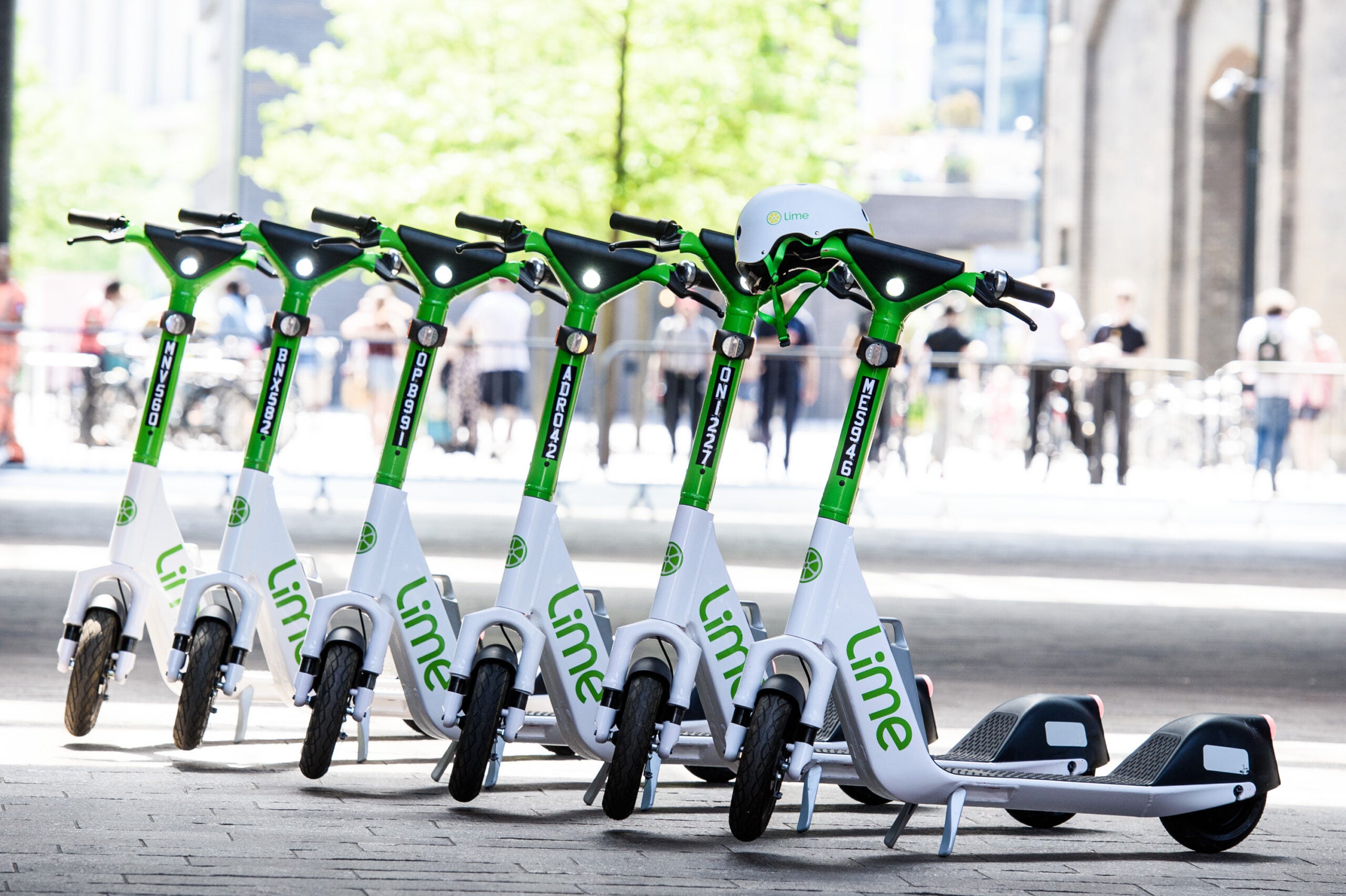
E-scooter trials have launched in London today almost a year after the government passed new regulations legalising the two-wheelers operated by rental companies.
The electric vehicles are unlocked via a mobile app and paid for by the minute. As of Monday 7 July, they are available for hire in the boroughs of Ealing, Hammersmith and Fulham, Kensington and Chelsea, Richmond upon Thames and Canary Wharf.

Access deeper industry intelligence
Experience unmatched clarity with a single platform that combines unique data, AI, and human expertise.
San Francisco-headquartered Lime, Berlin-headquartered Tier Mobility and Amsterdam-headquartered Dott won the hotly contested tender last month.
Combined, the three companies have raised more than $1.5bn in venture capitalist funding. Each will provide between 50 and 150 e-scooters in each of the boroughs. Riders can also pass through Tower Hamlets, although they are not available to rent in the area.
Users must hold a valid provisional driving license and complete training via the mobile app before taking their first ride. A 15-minute trip will cost between £3.25 and £3.40.
The London trial will last for up to 12 months to determine whether e-scooters can offer a safe and environmentally friendly form of transport for short city trips.

US Tariffs are shifting - will you react or anticipate?
Don’t let policy changes catch you off guard. Stay proactive with real-time data and expert analysis.
By GlobalData“Too many car journeys in London cover very short distances – we need alternatives,” said Mayor of London Sadiq Khan via Twitter.
Helen Sharp, Transport for London’s e-scooter trial lead, said: “Safety remains our number one priority for this trial and we will work closely with the e-scooter operators, London Councils and the boroughs to ensure rigorous standards are consistently met. We will also continue to work closely with all of our stakeholders, including TfL’s Independent Disability Advisory Group, to ensure that the trial meets the needs of everybody living in, working in and visiting the trial areas.
“This new trial will provide the data and insights we need to determine the longer-term role e-scooters could play in our strategy for a greener and healthier future for London.”
It remains illegal to ride a privately owned e-scooter on public roads and pavements in the UK, but in London and other cities people can often be spotted using their own vehicles. Helmets are recommended but not mandatory.
Too many car journeys in London cover very short distances—we need alternatives. From today, you can rent e-scooters in:
📍 Ealing
📍 Hammersmith & Fulham
📍 Kensington & Chelsea
📍 Richmond
📍 Canary WharfFind out more about the scheme and its rigorous safety standards:
— Mayor of London (@MayorofLondon) June 7, 2021
Chief Superintendent Simon Ovens, at the Metropolitan Police Service, said: “The Metropolitan police are pleased to support this trial to enable the government to be informed of how these e-scooters may form part of our transport infrastructure in the future. However, we’d like to remind everybody that private e-scooters used outside this trial remain illegal and will be dealt with by way of seizure.”
Trials have been taking place in select cities across the UK since July 2020. Concerns have been raised about the government-backed trials after several incidents of reckless use made headlines, including teenagers driving them on the motorway and inside shopping centres.
Proponents insist these are rare occurrences and point out that most e-scooters are now geofenced, which means they will stop operating if they venture outside the permitted area.
E-scooters operated by Lime and Bird started to appear in the US in 2017 as venture capitalist money allowed loss-making startups to offer cheap rides and gain valuations of more than $1bn.
E-scooter companies tend to operate on razor-thin margins and have been forced to improve their unit economics to make them viable. Some firms, including Lime, Tier and Voi, claim to have achieved profitable or break-even quarters.
Dott has raised a total of $140.8m, while Lime has raised $945m from backers. Tier has scooped up $447.9m, including a $250m funding round led by Japanese conglomerate SoftBank.







